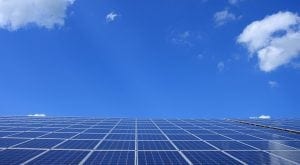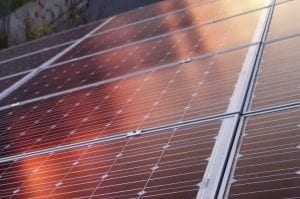Do Solar Powered Generators Work?
As technological advances continue to progress in our society, we’re able to take advantage of new energies for machinery such as Solar Generators. Of these new energies and fuel sources, perhaps one of the most impressive is solar energy. Solar energy, while new, has managed to make significant advancements in a short period of time. There are many different ways that solar energies have been applied to our lives in order to make obtaining power a more simple and straightforward procedure. When solar energy was first introduced to the public, it was often used as a supplemental power source for larger buildings and complexes.
While it was an effective fuel source, it was very costly to invest in solar panels when they were first being developed and most people couldn’t afford to simply rely on solar power to meet their needs. In addition to this, solar panels weren’t able to gather energy as efficiently as they are able to today. In modern times, we have been able to capture solar energy even on cloudy days. However, when solar panels were first being developed this wasn’t the case.
 Any sort of interference by clouds was enough to create a drop in energy collection and served as a potential danger for overloading devices like phones and laptops. Since this time, solar energy has made major progress. We are now able to capture solar energy even if there are less than ideal weather conditions outside. Additionally, there are safety’s put in place to ensure that you won’t have to worry about your devices overloading should you try to charge your phone and solar charger at the same time.
Any sort of interference by clouds was enough to create a drop in energy collection and served as a potential danger for overloading devices like phones and laptops. Since this time, solar energy has made major progress. We are now able to capture solar energy even if there are less than ideal weather conditions outside. Additionally, there are safety’s put in place to ensure that you won’t have to worry about your devices overloading should you try to charge your phone and solar charger at the same time.
We’ve also found ways of storing our solar energy more efficiently for later use so it can be converted later on into useable energy for our homes and devices. This has enabled us to consistently rely on solar energy to power our homes, our, vehicles, and other power sources. Additionally, we have been able to develop technology that enables us to use solar energy for emergency power situations. This gives us a more secure and reliable power source that is able to keep us safe and in power until our other energy sources can be restored.
Solar Panels vs Traditional Generator
If you’re debating on investing in solar panels or a traditional generator for your RV, you’ll have to consider what your power needs are. One of the first things you’ll need to think about is how much power you need to be able to produce to satisfy your needs. If you only use appliances and devices that require a minimal charge to operate, chances are you won’t need to invest in a generator to meet your energy needs. However, if you need a device that is able to put out enough energy to power your air conditioner or microwave oven you’ll need to be able to access a lot of power right away.
Chances are, you’ll need at least 3,000 watts of power to work with, however if you have a smaller RV or are a bit more conservative with your large appliance use you might be able to get away with investing in a device that only puts out about 2,600 watts. You won’t be able to find a solar panel that is capable of giving you this kind of power to work with unless you’re willing to invest in a very expensive solar panel system that can combine their collected energy to reach the necessary power output.
However, this is very costly, so it is not always an option that is affordable on an average income. This means that the majority of people who have these high power output needs will need to invest in a device that is able to meet this power output, and many of these devices are traditional gas generators. This, while effective, is not as desirable as using solar energy for several reasons. The first is that gas is a finite resource.
If you need to use it in a bind, you’ll be limited to your supply of gas when it comes to providing power for you and your family. This means that you may have to ration your use of the generator, and even if you do so, you won’t be able to guarantee that you’ll have enough gas to last you until the end of your crisis. Sunlight, on the other hand, is available in infinite quantities. Additionally, gas produces emissions and byproducts that are harmful to you and your family.
This means that you’ll have to have a well ventilated area if you want to operate your generator. If you’re trying to use your generator to power your RV it is unlikely that you’ll be able to find this easily, meaning you’ll have to leave your generator outside and do your best to protect it from less than ideal weather conditions. These conditions that come with having instant power are less than desirable.
However, many people are unsure of how to find middle ground when it comes to the two energy sources. Thankfully, this is no longer necessary. Because of this frustrating issue, a new form of technology has been devised – one that allows for a reasonable compromise. It comes in the form of hybrid generators.
Hybrid Solar Gas Generator
If you live in an area where it is difficult to attain a consistent source of power or you are worried about encountering an unexpected power outage, you’ll need to be able to ensure that you are able to provide enough energy to properly power your home. In order to do this, you’ll need to calculate what your energy uses are on average. The best way to provide power in these types of situations is to rely on solar energy to meet your main power needs and to use another form of energy to supplement your needs.
This is typically done by using a gas generator, but you could also look into hydro power or wind power. You’ll need to start by spending time figuring out what your power needs are. Once you’ve determined this, do your best to break your power needs by a significant wattage expenditure. Do this by estimating how much energy you really need to meet your needs. An example is the use of a refrigerator versus the use of a microwave.
 You’ll need to let the refrigerator run all day in order to ensure that your foods don’t go bad. However, you can get by with only using your microwave a few hours each day. You can save energy here microwave. You’ll need to let the refrigerator run all day in order to ensure that your foods don’t go bad. However, you can get by with only using your microwave a few hours each day. You can save energy here by unplugging your microwave when it isn’t in use to help prevent wasting any energy that you harvest.
You’ll need to let the refrigerator run all day in order to ensure that your foods don’t go bad. However, you can get by with only using your microwave a few hours each day. You can save energy here microwave. You’ll need to let the refrigerator run all day in order to ensure that your foods don’t go bad. However, you can get by with only using your microwave a few hours each day. You can save energy here by unplugging your microwave when it isn’t in use to help prevent wasting any energy that you harvest.
Once you’ve figured out your energy needs, invest in enough solar panels to give you more than enough power to work with. This will give you ample energy to access during the night hours and help to ensure that you’ll be able to run your home even on cloudy or snowy days. However, there will inevitably be times when you can’t access solar energy to fuel your home.
When this happens, you can use your supplemental fuel source to keep you in power and comfortable until the sun comes out again. This will help to ensure that you don’t burn through too much fuel, won’t have to spend an excess amount of money, and will be able to implement a cleaner form of technology that will help you reduce your carbon footprint.
Solar Generator vs Fuel Generator
So when it comes down to it, which form of energy is better? The answer will almost always be solar energy. Solar energy is the best way to decrease your carbon footprint and have a dependable energy source that won’t require you to make consistent payments to keep the lights on. You’ll always be able to ensure that you can take advantage of the sunlight exposure in your area and maximize your solar potential.
Additionally, solar energy requires minimal upkeep and will only need to be replaced or updated every few decades. The only time you’d benefit more from using gas or diesel over solar energy is if you lived in an area that consistently had limited sunlight access. This would mean that you would be forced to invest in a hybrid system if you wanted to be able to achieve maximum power potential because you wouldn’t be able to harvest enough solar energy on a regular basis.
In order to determine what type of generator you need to rely on, you’ll need to take your area of residence into consideration and carefully look at the weather averages over the past 5 or 10 years. This will help you determine what your power needs are for each month, and if it makes sense for you to use strictly solar power, or if a hybrid system will better suit your needs.